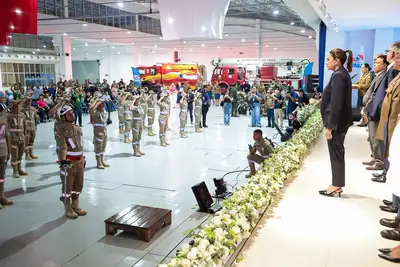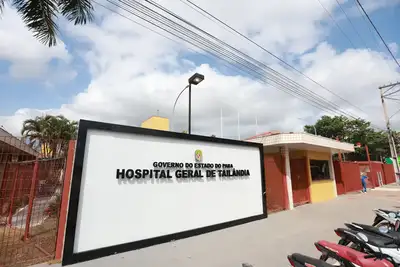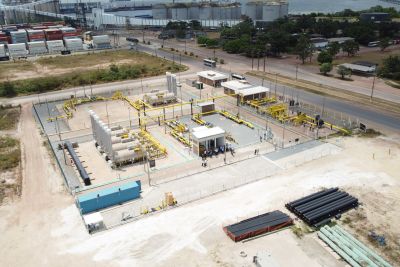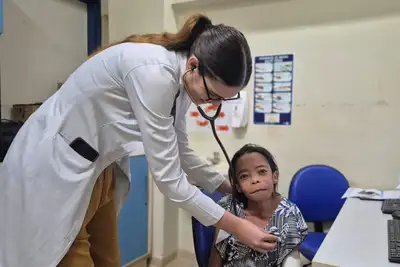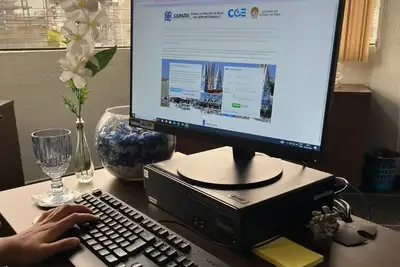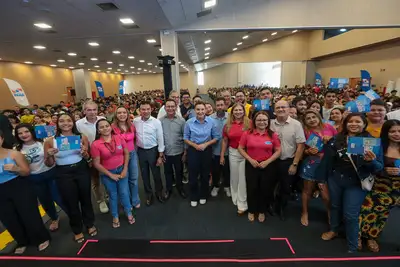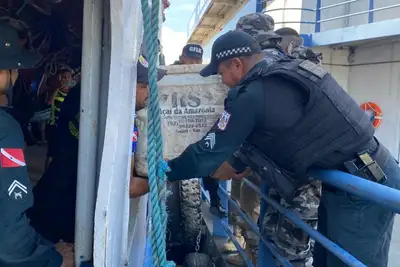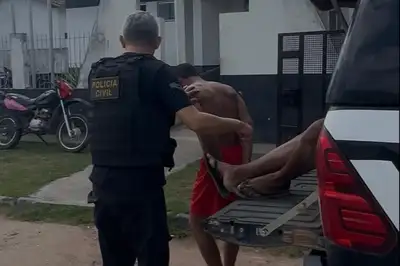Seaster receives refurbished computers for training guardians in Pará
Equipment donated by Banco do Brasil and refurbished by Instituto Gustavo Hessel will strengthen Sipia training, promote digital inclusion, and expand opportunities throughout the State
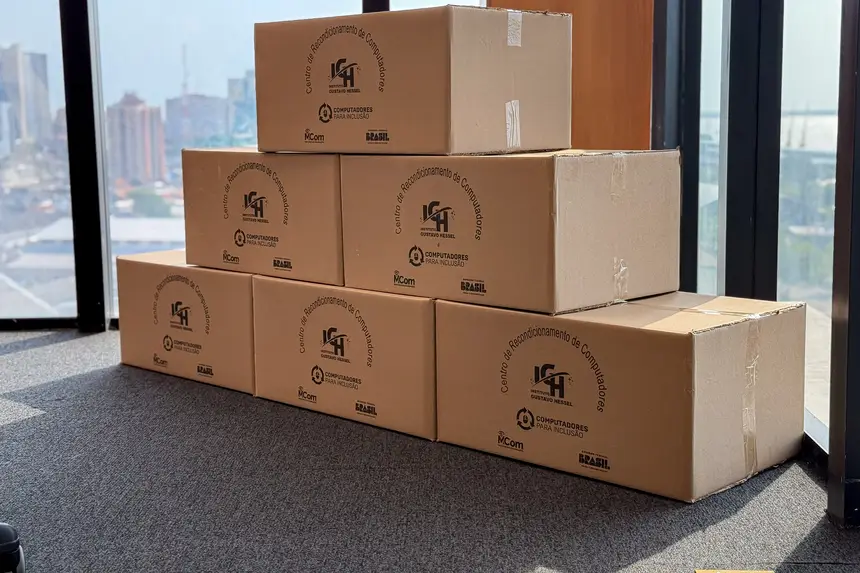
The State Secretariat for Social Assistance, Labor, Employment and Income (Seaster) received 40 computers at the Computer Refurbishment Center (CRC), located at the Instituto Gustavo Hessel (IGH) in Belém. The event was attended by managers and technicians from the secretariat, as well as representatives from Banco do Brasil, the manager of IGH.
The equipment will be used by Seaster for ongoing training of Sipia, which is the national system for recording and processing information on the guarantee and defense of fundamental rights in the Statute of the Child and Adolescent (ECA). The target audience for the training will be the guardians from the 144 municipalities of Pará.
The CRC works on recovering equipment discarded by banks and public agencies, which, after undergoing refurbishment processes, are allocated to public schools, indigenous villages, quilombola territories, and riverside communities, in addition to actions with training, covering all regions of Pará.
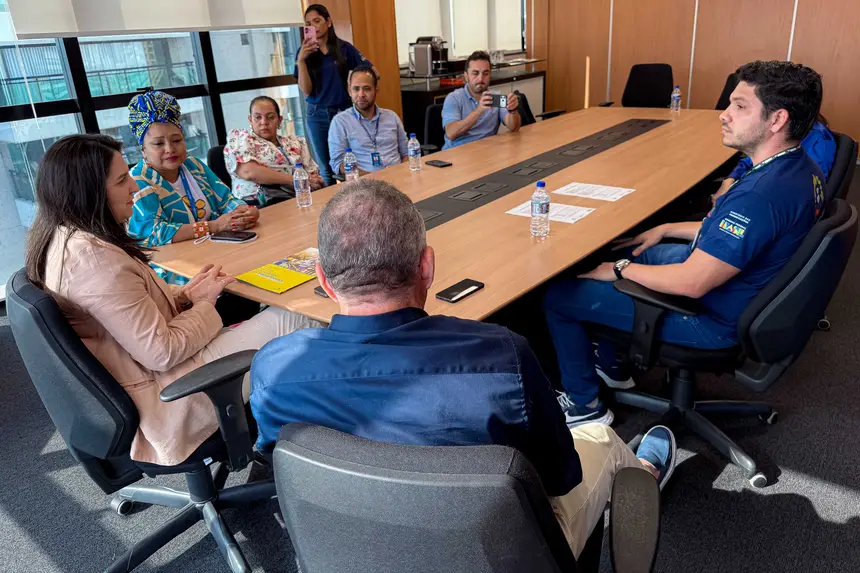
On this occasion, representatives from partner institutions also highlighted the importance of the initiative. The regional superintendent of the public sector at Banco do Brasil, Ionara Santos, reinforced the social role of the institution and the partnership established with the government of Pará.
“Banco do Brasil has sustainability and inclusion as central axes of its operations. Knowing that the donated computers will make a difference in people's lives, through the State Secretariat of Social Assistance of Pará, is the best result we could expect as a public bank committed to the country's development,” emphasized the manager.
The refurbishment process is carried out by trained professionals and students to recover and modernize the equipment before its redistribution, thus providing, through partnerships, the promotion of more training for personal and professional development for those in situations of social vulnerability.
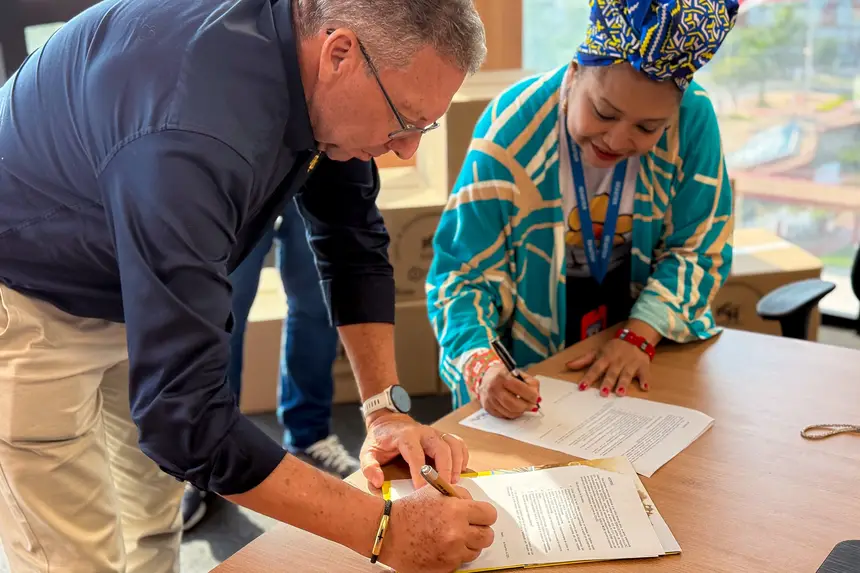
Professor Eliel Pantoja explains how the institution's work transforms discarded goods into tools for digital inclusion.
“At the Institute, we work with the refurbishment of computers and, at this moment, we are making a donation that is extremely gratifying for us. We can return to society equipment that, initially, would no longer be used. We receive computers from various donations, in this case from Banco do Brasil, a partnership for which we are very grateful. After the entire process of upgrades and adjustments, these machines return to institutions that will make a real impact on the lives of many people, especially in the social, employment, and income areas,” said Eliel Pantoja.
Program
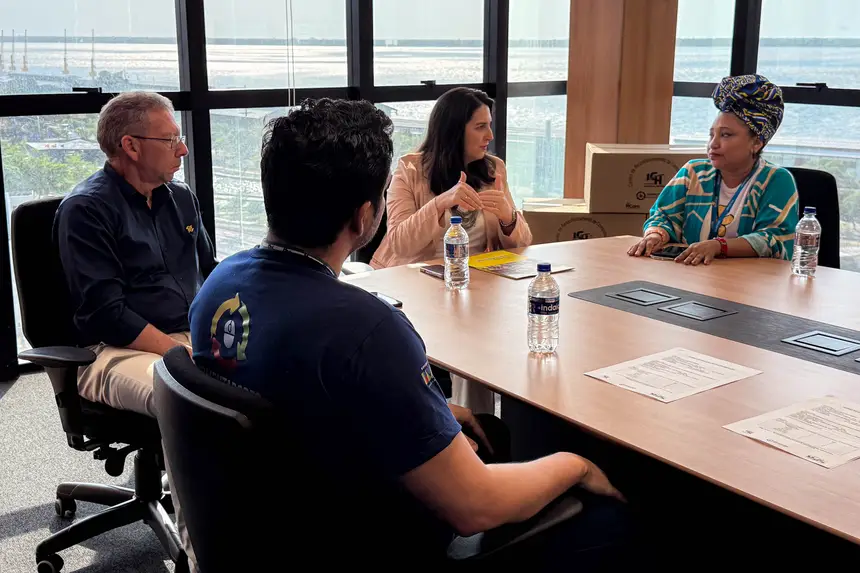
The refurbishment of computers for the inclusion of people also works on the sustainable recovery of electronic equipment and the training of citizens for the use and maintenance of technologies. Equipment that cannot be reused undergoes environmentally appropriate disposal.
“With this partnership with the CRC in Belém, the government of Pará further reinforces its commitment to inclusion policies and social technology, which aim to enhance the professional and personal development of municipal managers with more training,” emphasized Inocencio Gasparim, head of Seaster.


